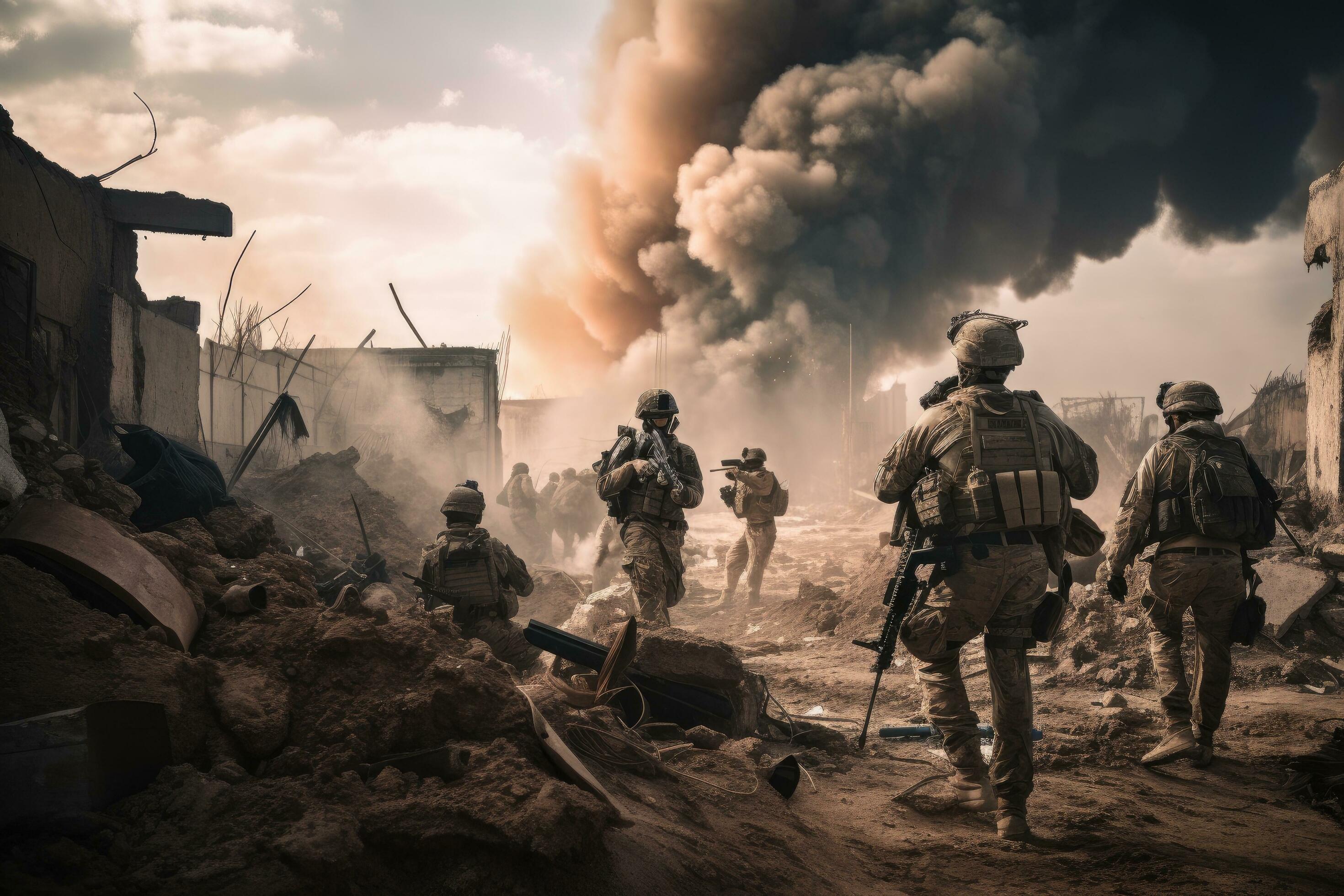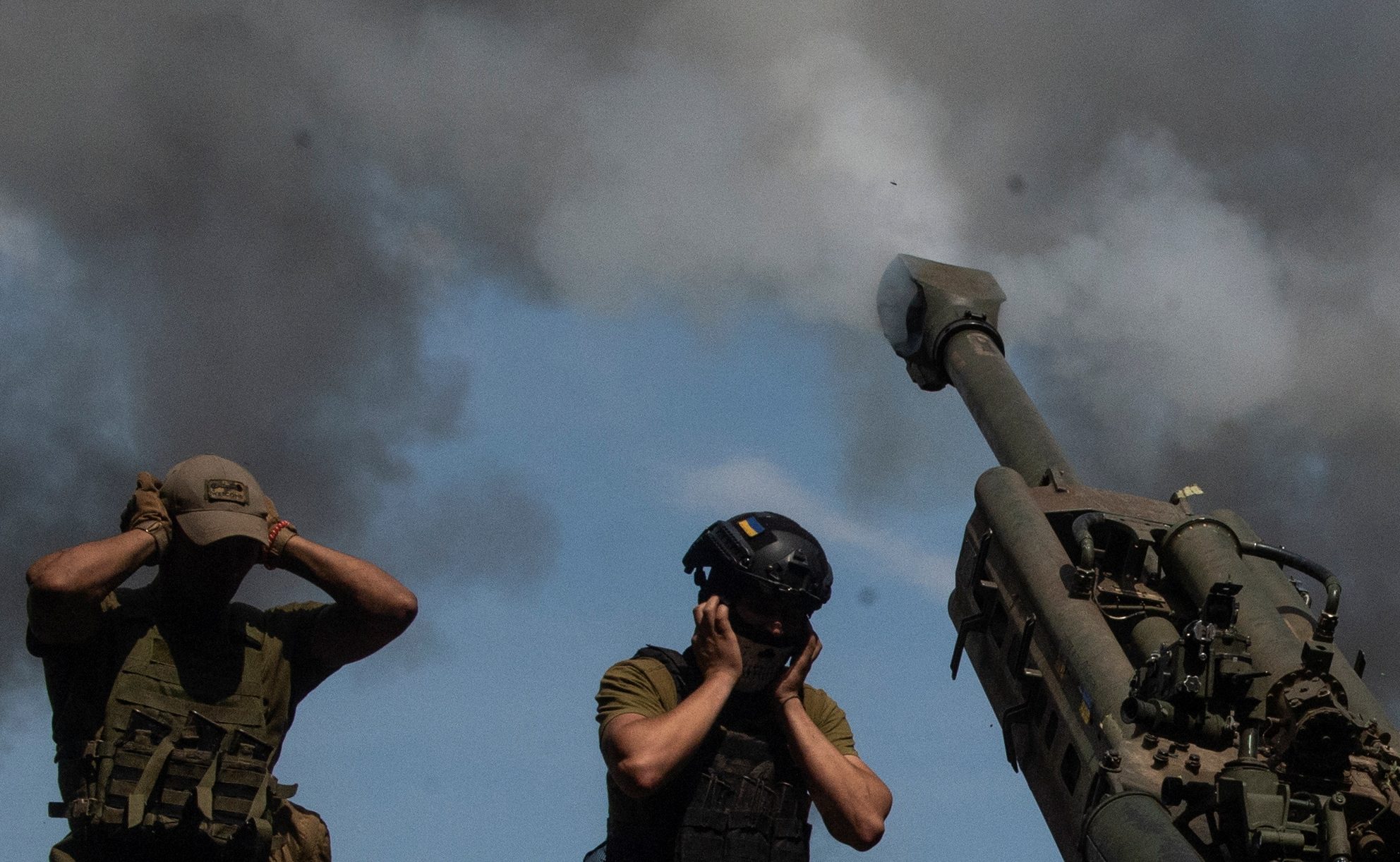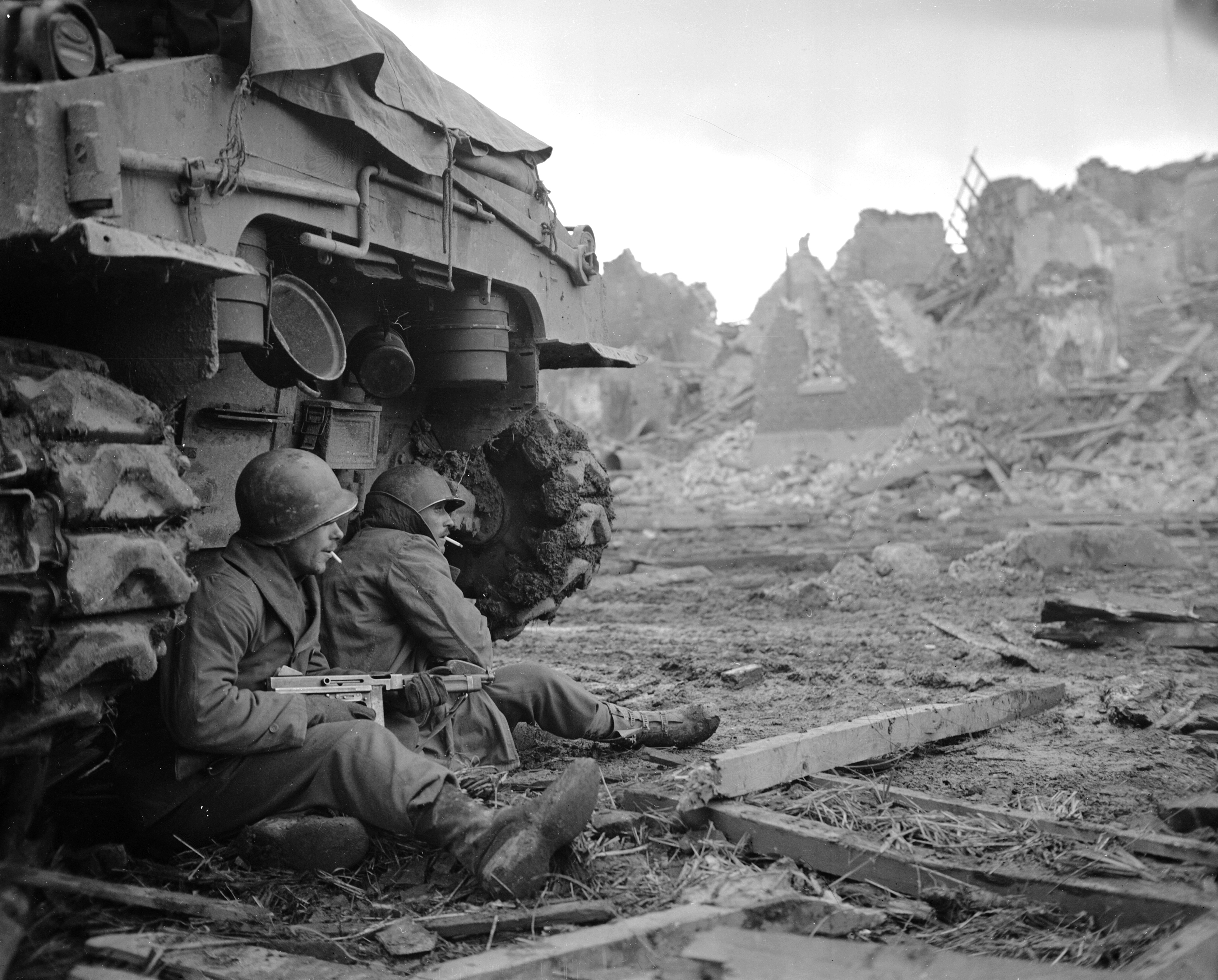There's a lot of talk these days about the changing situation in the Middle East, and one thing that keeps coming up is the long-standing friction between Israel and Iran. It's a relationship that has, quite frankly, shifted dramatically over time, moving from something rather friendly to a situation of intense opposition. People are naturally wondering what exactly is going on, what the true nature of this deep-seated rivalry might be, and why it seems to be getting more heated right now.
You see, what we are witnessing is a rather complex set of events, a sort of unfolding story that has roots stretching back many decades. Just recently, there was a specific incident where Iran pointed a finger at Israel, saying they were responsible for an attack on a diplomatic building in Syria. That particular event, you know, really cranked up the tension, and Iran has, in a way, made it quite plain that they intend to respond, to even things out.
This isn't just some sudden outburst, though. It's a continuation of a story that has seen these two nations, once quite close, become, well, almost like adversaries. The current events, like the exchange of strikes and the talk of retaliation, are just the latest chapters in a very long book about their relationship. It's a situation that has many layers, and understanding it means looking back a little bit at how things got to be this way, and then seeing how recent happenings have brought everything into the open, perhaps more than ever before.
- Melly
- How Old Is Aj From Backstreet Boys
- Lil Kim Net Worth 2025
- Breckie Hill Nudes Of
- Children Of Julianne Moore
Table of Contents
- How Did This Conflict Begin?
- What is the War Between Israel and Iran About - The Early Days of Hostility
- Why Did Things Heat Up Recently?
- What is the War Between Israel and Iran About - Escalation and Direct Strikes
- Is This a New Kind of Confrontation?
- What is the War Between Israel and Iran About - The Wider Picture
- What Happens Next in This Conflict?
How Did This Conflict Begin?
So, to really grasp what's going on, it helps to rewind the clock a little bit. There was a time, believe it or not, when Israel and Iran actually had a pretty friendly connection. Their governments, you know, used to get along quite well, sharing interests and maintaining what many would call a cordial relationship. But that all changed, quite dramatically, with a major event in Iran's history: the Islamic Revolution in 1979. This big shift in Iran, where a new kind of government took hold, completely altered how they looked at Israel, turning those once warm feelings into something quite the opposite, a rather fierce opposition, actually.
This change wasn't just a minor tweak; it was a fundamental reordering of their relationship. The new leadership in Iran, led by Ayatollah Ruhollah Khomeini's supporters, overthrew the then-ruler, Mohammad Reza Pahlavi, who was the Shah of Iran. The Shah, as a matter of fact, had been a close associate of Israel. So, when he was removed from power, it pretty much pulled the rug out from under the friendly ties that had existed. This overthrow, you see, is where the deep-seated competition between the Islamic Republic of Iran and the Jewish State really began to take shape, setting the stage for what we see today.
What is the War Between Israel and Iran About - The Early Days of Hostility
Following that big change in 1979, the relationship between these two nations really soured. It wasn't just a cooling off; it was a move towards a very strong dislike, almost an open antagonism. Over the years, this has played out in various ways, often behind the scenes, with each side trying to gain an upper hand without always engaging in direct, open fighting. There have been times when both countries have launched missile strikes at one another, and Israel has, on various occasions, targeted individuals in Iran and Syria who they consider to be a threat. This sort of back-and-forth has been a consistent feature of their interactions, even if it wasn't always headline news, basically.
- Bruce Willis Net Worth 2025
- First Time Gay Stories
- Chipfields Latest
- How Okd Is Riley Green
- Project Escape Room Wiki
It's worth noting, too, that Israel has given backing to groups that oppose the current government in Iran. One example of this is their support for the People's Mujahedin of Iran, a group that is against the Iranian leadership. This kind of support for internal opposition movements is just one way the conflict has played out, adding another layer to the already complex situation. It shows how the rivalry isn't just about military actions but also involves political maneuvering and attempts to influence events within each other's borders, or very close to them, in some respects.
Why Did Things Heat Up Recently?
Well, things have certainly gotten more intense lately, haven't they? The conflict, which had been going on for a long time, often in the shadows, has now, apparently, burst into the open. A lot of this has to do with the events that unfolded after the attacks carried out by Hamas on October 7, 2023. That particular event seemed to act like a kind of trigger, bringing the long-standing, mostly hidden conflict between Israel and Iran out into the full light of day. It's almost as if a curtain was pulled back, revealing the extent of their ongoing disagreement.
In fact, a more direct sort of armed confrontation between Iran and Israel seems to have started around June 13, 2025. This was when Israel launched what many would call surprise attacks. These attacks targeted really important military sites and nuclear facilities inside Iran. This happened right in the middle of the Gaza war, and it definitely contributed to the broader spread of that conflict across the area. It was a pretty significant move, you know, marking a new phase in their relationship, a much more open and forceful one, really.
What is the War Between Israel and Iran About - Escalation and Direct Strikes
During the very first hours of this more direct fighting, Israeli air and ground forces carried out actions that led to the removal of some of Iran's very important military figures. They also targeted nuclear scientists and even some politicians. This was a very deliberate move, clearly aiming to weaken Iran's capabilities and leadership. It showed a willingness to go beyond covert operations and engage in more overt, impactful actions. It was, in a way, a declaration that things had truly shifted, that a new chapter in their long history of disagreement had indeed begun.
Then, quite recently, there was a major strike launched by Israel. This happened early on a Friday and caused explosions in Tehran, which is the capital city of Iran. This was a very visible and impactful act, sending a clear message. From Iran's perspective, responding to such an act is seen as a way to "balance the equation of deterrence." What they mean by that is, they believe a response will show Israel that there are consequences for its actions, and that it can't just act without expecting a reaction. It's about maintaining a kind of standoff, a very delicate balance of power, basically.
However, there's a real concern, and Iran itself seems to be quite aware of it, that taking such a step, making a strong response, could actually pull them into a much bigger war. This is a war that Iran has, in some respects, been trying to avoid ever since those Hamas attacks back in October 2023. So, while they feel a need to respond to what they see as an attack on their sovereignty or interests, they also recognize the very real danger of getting caught up in a wider, more devastating conflict across the region. It's a very tense situation, a kind of high-stakes game of chess, you know.
Is This a New Kind of Confrontation?
Many people are saying that what we're seeing now is something truly historic. It's almost as if we are closer than we've ever been to a direct, open war between Israel and Iran. And if that were to happen, the worry is that it wouldn't stay contained between just those two. It could very easily spill over, affecting the entire region and drawing in other countries. That's a very serious prospect, one that keeps many people up at night, really. The potential for a much broader conflict is something everyone is watching very, very closely, and understandably so.
This increased tension isn't just about direct attacks, either. Iran has been involved in what are called "proxy conflicts," where they support groups in other countries that act on their behalf. One example is their ongoing rivalry with Saudi Arabia, which has, in a way, led to an interesting development: an informal alliance forming between Israel and some Arab states. These Arab nations, like your neighbors, perhaps, share concerns about Iran's growing influence. So, this creates a complex web of relationships, where old enemies find common ground against a shared perceived threat, apparently.
What is the War Between Israel and Iran About - The Wider Picture
We've certainly seen a lot of back and forth, haven't we? Israel and Iran have been trading blows, with missile strikes from both sides and Israel carrying out assassinations of targets in Iran and Syria. This period marks the most intense fighting we've seen between these two countries in many, many decades. It's not just a little skirmish; it's a significant increase in the level of direct confrontation, something that feels quite different from the more covert operations of the past. It's a very, very active period of friction, to be honest.
The recent wave of drones and missiles that flew towards Israel overnight on a Sunday brought with it a completely new stage of tension. It introduced a fresh sense of unpredictability and open confrontation right there in the Middle East. It felt like a line had been crossed, or at least tested, in a way that hadn't been done before. This particular event, you know, really highlighted how precarious the situation has become, and how quickly things can escalate, bringing with it a lot of worry about what might come next, at the end of the day.
What Happens Next in This Conflict?
So, what does all of this mean for the future? Well, if countries like the United States and those in Europe truly want to prevent this situation from turning into a much wider, regional war, then there are some steps that many believe need to be taken. They would, essentially, need to persuade Iran to pull back its support for those proxy groups, the ones that operate on its behalf in other places. This is seen as a key way to reduce the overall level of friction and prevent further destabilization across the area. It's about trying to calm things down, you know, before they get completely out of hand.
Beyond that, there's also a very strong feeling that something needs to be done about Iran's nuclear program. This is a very sensitive topic, and it's a source of great concern for many nations, particularly Israel. The idea is that if Iran's nuclear activities are not addressed in some way, or brought under some kind of control, then the conflict will, quite simply, continue to get worse. It will, in other words, spiral out of control, becoming more dangerous and harder to contain. It's a situation that, basically, has many layers of risk, and everyone is hoping for a path to a more stable outcome, somehow.
Related Resources:



Detail Author:
- Name : Makenzie Ankunding
- Username : emmet06
- Email : khyatt@ullrich.net
- Birthdate : 1993-11-25
- Address : 728 Buckridge Corners Maureenhaven, SC 92755-3274
- Phone : 1-463-361-6371
- Company : Murray LLC
- Job : Designer
- Bio : Excepturi officiis delectus facere officia iusto. Ipsa neque sunt aliquid facilis nemo eius. Cumque quo eveniet impedit voluptatem labore voluptatem. Rem eligendi et enim qui saepe.
Socials
linkedin:
- url : https://linkedin.com/in/larkin1970
- username : larkin1970
- bio : Ducimus eos maiores ut.
- followers : 5280
- following : 1119
tiktok:
- url : https://tiktok.com/@alarkin
- username : alarkin
- bio : Nostrum quibusdam illum aut odit dolore et quia.
- followers : 2539
- following : 335